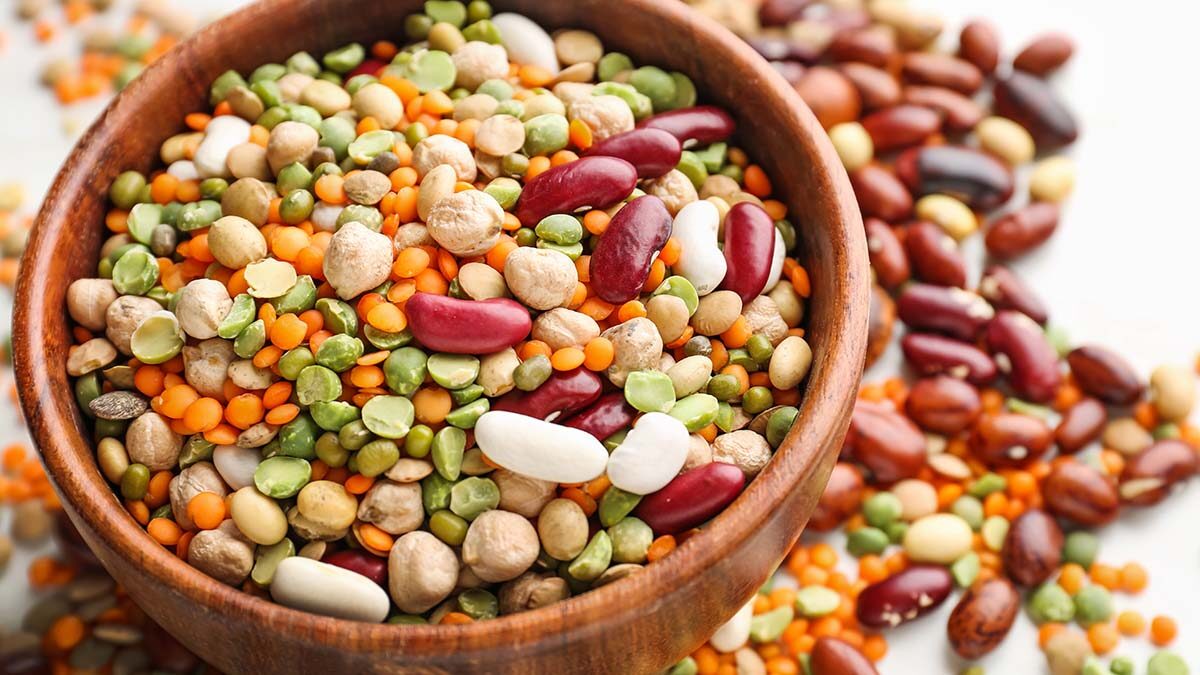Beans, beans, they’re good for your heart; the more you eat, the…longer you live? Legumes may be the most important predictor of survival in older people from around the globe. Researchers from different institutions looked at five different cohorts in Japan, Sweden, Greece, and Australia. Of all the food factors they looked at, only one was associated with a longer lifespan across the board: legume intake. Whether it was the Japanese eating their soy, the Swedes eating their brown beans and peas, or those in the Mediterranean eating lentils, chickpeas, and white beans, legume intake was associated with an increased lifespan. In fact, it was the only result that was plausible, consistent, and statistically significant from the data across all the populations combined. We’re talking an 8% reduction in risk of death for every 20 gram increase in daily legume intake. That’s just two tablespoons worth! So if a can of beans is 250 grams, and we get 8% lower mortality for every 20 grams, if we eat a can a day can we live forever?
If, however, one wants to decrease their lifespan, studies suggest eating a bean-free diet may increase our risk of death.
Having arrived at the one dietary fountain of youth, why aren’t people clamoring for beans? Fear of flatulence. So is that the choice we’re left with: Breaking wind or breaking down? Passing gas or passing on? Turns out that people’s concerns about excessive flatulence from eating beans may be exaggerated.
A recent study, profiled in my video Increased Lifespan from Beans, involved adding a half-cup of beans every day to people’s diets for months to see what would happen. The vast majority of people experienced no symptoms at all. However, a few percent did report increased flatulence, so some individuals may be affected. But most aren’t. Even among those that were affected, 70% or more of the participants felt that flatulence dissipated—no pun intended—by the second or third week of bean consumption. So we’ve just got to stick with it.
And a small percentage reported increased flatulence on the control diet without any beans. People have preconceived notions about beans such that just the expectation of flatulence from eating beans may influence their perceptions of having gas. Researchers didn’t actually measure farts in this study, they just asked participants how much gas they had. We know from previous studies that if someone eats a product that’s labeled to have something that may cause intestinal distress, it causes more intestinal distress—whether it actually contains that ingredient or not!
So people thinking beans are going to cause gas may just be more likely to notice the gas they normally have. Either way it tends to go away. After a few weeks of daily bean consumption, people perceive that flatulence occurrence returns to normal levels.
In another study, researchers added more than a half a cup of kidney beans to people’s daily diets, and the research subjects reported that the discomfort they initially felt within the first day or two quickly disappeared. We’ve just got to stick with it.
The bottom line is that an increasing body of research supports the benefits of a plant-based diet, and legumes specifically, in the reduction of chronic disease risks. In some people, increased bean consumption may result in more flatulence initially, but it will decrease over time if we just keep it up. Doctors should recommend a bean-filled, plant-based diet to their patients, as the nutritional attributes of beans far outweigh the potential for transitory discomfort. The long-term health benefits of bean consumption are great.
Eating beans in the long term may make our term on earth even longer.
I’ve previously covered intestinal gas in one of my more amusing blog posts, Beans and Gas: Clearing the Air.
More on the benefits of beans in:
- Phytates for the Prevention of Osteoporosis
- Beans and the Second Meal Effect
- Eating Healthy on the Cheap
- Plant Protein Preferable
- BRCA Breast Cancer Genes and Soy
-Michael Greger, M.D.
PS: If you haven’t yet, you can subscribe to my videos for free by clicking here and watch my full 2012 – 2015 presentations Uprooting the Leading Causes of Death, More than an Apple a Day, From Table to Able, and Food as Medicine.
